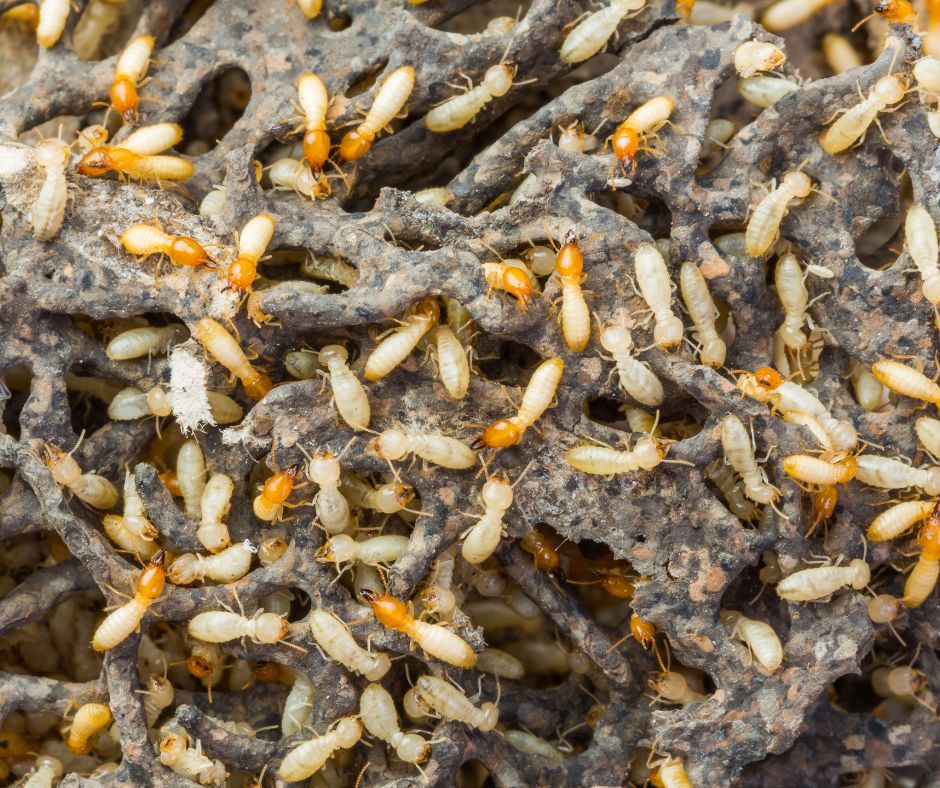Comprehensive Guide to Comprehending Pest Control Techniques and Their Therapy
Comprehending bug control techniques is necessary for reliable management of unwanted microorganisms that pose threats to health, farming, and residential or commercial property. What aspects should be considered when selecting the suitable parasite control method for a particular circumstance?
Summary of Insect Control Approaches
Parasite control approaches incorporate a selection of strategies created to handle and get rid of unwanted microorganisms that can hurt human health, farming, and residential or commercial property. Efficient bug administration is critical for maintaining the integrity of communities and making certain the safety of food supplies. These methods can be extensively categorized right into 3 primary methods: social, mechanical, and organic controls.

Cultural control involves modifying farming methods or ecological conditions to decrease bug establishment and reproduction. This method includes crop turning, sanitation, and picking pest-resistant plant ranges. Mechanical control depends on physical obstacles or devices to avoid pest access or straight eliminate them. Instances consist of traps, webs, and hand-picking unsafe pests.
Biological control uses all-natural predators, bloodsuckers, or microorganisms to regulate pest populaces. This technique stresses ecological equilibrium and can consist of introducing useful bugs, such as ladybugs or predatory nematodes, to handle parasite existence.
Integrated pest monitoring (IPM) combines these approaches, making use of a holistic strategy that stresses prevention, tracking, and responsible monitoring. By employing a mix of these methods, bug control can be a lot more sustainable and reliable, lessening reliance on chemical interventions while guarding human health and the setting.

Chemical Parasite Control Solutions
A variety of chemical pest control remedies are offered, providing reliable choices for taking care of pest populations when other methods may fail. These services mostly consist of insecticides, herbicides, fungicides, and rodenticides, each developed to target details bugs while decreasing harm to non-target microorganisms.
Insecticides are specifically efficient versus a series of pests, including ants, cockroaches, and termites, and can be categorized as call or systemic agents. Call insecticides kill bugs on call, while systemic insecticides are soaked up by plants, making them harmful to pests that feed upon them. Herbicides are utilized to manage undesirable vegetation, whereas fungicides are vital for handling fungal conditions that can harm crops and decorative plants.
In addition, incorporated parasite administration (IPM) concepts ought to be utilized, combining chemical remedies with cultural, mechanical, and biological strategies for sustainable bug control. This all natural approach not just improves pest monitoring performance yet also decreases prospective ecological influences associated with chemical usage.
Biological Pest Control Strategies
Biological pest control strategies provide an eco-friendly option to chemical methods by making use of all-natural killers, bloodsuckers, or virus to manage parasite populaces. This strategy leverages the Visit Your URL eco-friendly connections between organisms, advertising a balanced ecosystem while minimizing chemical residue in the atmosphere.
Among one of the most usual biological control methods entails the intro of natural opponents. For instance, ladybugs are employed to regulate aphid populations, while parasitical wasps can target caterpillars and other pests. These all-natural killers effectively decrease pest numbers without harming beneficial bugs.
Furthermore, microbial representatives such as germs, fungis, and viruses are made use of to contaminate and eliminate specific parasites. Bacillus thuringiensis (Bt), a naturally happening germs, is extensively used to regulate caterpillars and various other larvae, showcasing the performance of microbial bug control.

Physical and Mechanical Approaches
Regularly used in integrated insect management methods, physical and mechanical approaches function as efficient devices for regulating parasite populaces without the usage of chemicals. These methods depend on physical obstacles, catches, and various other mechanical gadgets to stop or get rid of parasites, making them eco-friendly options.
Physical approaches include using obstacles such as insect netting, screens, or row covers that physically block insects from accessing plants. This is specifically beneficial in agricultural settings where crop security is important. Additionally, habitat control, such as eliminating debris and standing water, can decrease parasite reproducing websites, thus minimizing problems.
Mechanical techniques incorporate traps, which can be designed to record certain parasites. Sticky traps and scent catches are look at here usual instances that draw and maintain pests, assisting in tracking and control. Vacuuming is an additional mechanical strategy, reliable for getting rid of find out here now bugs from interior atmospheres, specifically in cases of infestations.
Preventative Insect Monitoring Approaches
Reliable preventative insect management approaches are essential for maintaining healthy and balanced atmospheres and reducing pest-related problems prior to they emerge (Pest Control in Port Charlotte, FL). These strategies focus on aggressive actions that lower the chance of bug infestations by attending to the origin

An additional essential approach involves proper landscape design techniques (Pest Control in Port Charlotte, FL). Maintaining greenery trimmed and away from buildings can minimize harborage areas for bugs. In a similar way, applying integrated pest administration (IPM) techniques that include monitoring parasite populaces and using organic controls can foster a balanced environment that normally suppresses pest numbers.
Education and learning and training for personnel and homeowners on acknowledging early indications of bug task are additionally key components of an effective preventative program. By cultivating an atmosphere of recognition and caution, companies and property owners can substantially enhance their bug management initiatives and guard their spaces versus future infestations.
Verdict
Using an Integrated Parasite Management (IPM) framework enables for the sustainable administration of parasites while decreasing ecological impact. Inevitably, a comprehensive understanding of these diverse bug control strategies is necessary for achieving successful end results in insect administration initiatives.